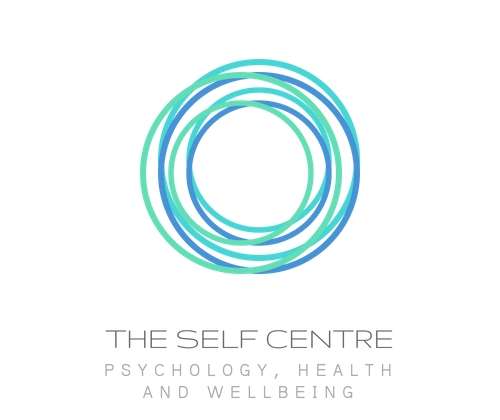
The Stories We Tell Ourselves: How Early Trauma Shapes Self-Perception
Principal Clinical Psychologist and Practice Director
The human mind creates meaning through stories — narratives about our worth, our place in the world, and what we can expect from others. These stories often begin in childhood. While many early memories are positive, most of us also carry moments of pain, inconsistency, or emotional disconnection. When early experiences involve trauma, they can profoundly influence how we perceive ourselves and how we engage with life as adults.
At The Self Centre, we often see how these narratives, the stories we tell ourselves over and over, influence self-esteem, relationships, and even decision-making. The good news is that with the right support, these stories can be explored, understood, and even rewired, helping many people reclaim their sense of self.
How Early Trauma Shapes Self-Perception
Trauma in childhood does not just affect memory; it affects identity. Even very subtle experiences of emotional neglect, criticism, or caregiver inconsistency can create internalised beliefs such as:
“ I am not good enough.” “ I have to be perfect to be loved.” “ I cannot trust my feelings or instincts.”
These beliefs often operate unconsciously, guiding decisions, relationships, and coping strategies without us even realising it. Someone might overwork themselves to earn approval, avoid closeness to protect against rejection, or feel chronic self-doubt despite clear evidence of competence.
If these patterns feel familiar, The Self Centre psychologists provide evidence-based therapies to help people understand and change trauma patterns. Strategic intervention can help prevent these stories from continuing to limit your life.
Schema Therapy: Identifying and Challenging Limiting Patterns
One of the most effective ways to address these stories is through schema therapy. Schema therapy helps people identify deeply ingrained patterns, known as schemas, that were often formed in childhood. These schemas shape how we interpret experiences, react to challenges, and relate to others.
For example, a “defectiveness/shame” schema might lead someone to believe they are fundamentally flawed, even when loved and valued. A “mistrust/abuse” schema may make it hard to trust others or accept kindness. Through schema therapy at The Self Centre, our clients learn to:
1. Recognise their schemas by noticing automatic thoughts and feelings linked to old narratives.
2. Understand their origins by connecting patterns to early experiences, not current reality.
3. Develop new coping strategies by learning how to respond in ways that are self-compassionate and adaptive.
You can explore our schema therapy sessions to learn how this approach can help you feel more confident and in control.
EMDR: Reprocessing Trauma for Lasting Change
While understanding the origin of these patterns is important, sometimes the emotional charge of trauma keeps the old stories alive. That is where EMDR therapy comes in.
EMDR is an evidence-based approach designed to help the brain process traumatic memories safely. The World Health Organization recommends EMDR as a first-line treatment for trauma and post-traumatic stress disorder. When trauma is not fully processed, it can get stuck, causing intrusive thoughts, strong emotional reactions, or persistent negative beliefs about ourselves.
EMDR helps by:
· Reprocessing traumatic memories so they lose their intensity.
· Reducing emotional distress linked to past events.
· Changing negative beliefs such as “I am unworthy” or “I am unsafe.”
· Allowing clients to integrate positive self-perceptions and feel more in control.
Through bilateral stimulation, often eye movements guided by a trained therapist, EMDR encourages the brain to digest the memory differently. This does not erase the past, but it removes the automatic emotional charge, allowing clients to view themselves and their experiences with clarity and compassion.
If you feel ready to take the first step towards healing, you can book a session with our EMDR-trained psychologists today.
Why Addressing Trauma Stories Matters
The stories we hold about ourselves are not just abstract ideas; they influence our mood, relationships, career choices, and even physical health. When trauma-based narratives go unexamined, they can contribute to anxiety, depression, and difficulty forming healthy connections.
Through therapy at The Self Centre, people can begin to:
· Challenge limiting beliefs that are no longer serving them.
· Cultivate self-compassion instead of self-criticism.
· Make choices aligned with values, not fear or old patterns.
· Build resilience and confidence in the face of life’s challenges.
Therapy is about reclaiming the narrative of your life, and it helps people move from survival to living intentionally and authentically.
Taking the First Step
Exploring the stories we carry can feel vulnerable, especially when those stories were formed in childhood. At The Self Centre, we provide a safe, evidence-based space for adults and teens to uncover these patterns and start healing.
If you have ever wondered why certain feelings, behaviours, or fears keep resurfacing, know that it is not a personal failing. Often, it is a reflection of old narratives that can be gently reprocessed with insight, EMDR, and professional evidence-based support.
Your story is not set in stone. With the right support, you can reframe the old narratives and reclaim your sense of self.
Book a session now to start healing with our expert team.
